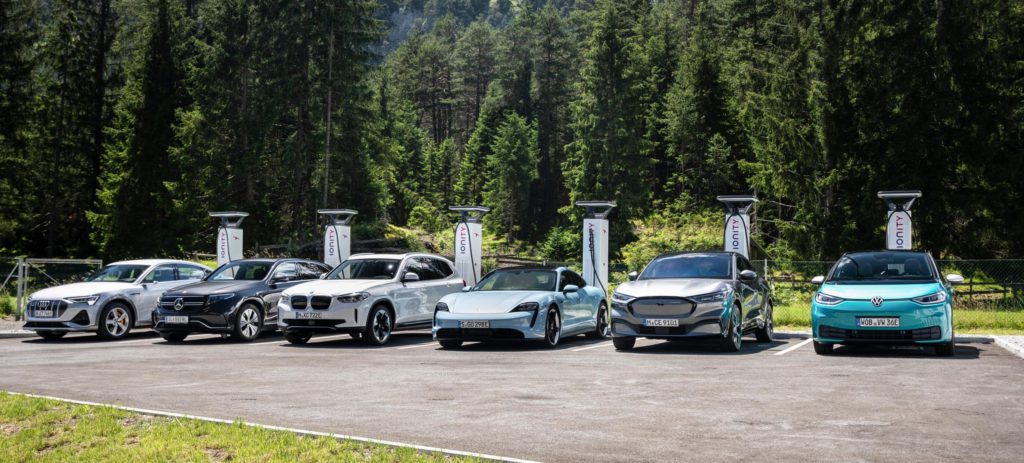European survey reveals more clarity needed to drive EV adoption
16 March 2021

A greater need for clarification over electrically-chargeable vehicles (EVs) is the finding of a Europe-wide survey conducted by Ionity. The charging-infrastructure provider, a joint venture between several carmakers, energy providers and investors, believes many consumers still see several barriers to overcome before they consider an EV, although their concerns are unjustified.
The majority of respondents believe that in 10 years, the automotive market will be predominantly electric. In addition, 30% of those surveyed are considering switching to an EV in the next 12 months. The reduction in CO2 emissions is the decisive argument for 39%, with only Italy differing – where the majority of respondents state that government subsidies are the main reason for considering a switch.
Barriers to adoption
EVs still have to overcome several barriers before many buyers would consider replacing their internal combustion engine (ICE) car. Looking at the reasons for hesitation, Ionity found unanimity across borders, with 37% stating that a ′bigger range’ is needed before they would switch.
However, the development of the charging infrastructure in individual countries influences the perceptions of drivers. In the Netherlands, a country with a well-developed infrastructure, drivers of EVs have fewer concerns about charging times (37%) or charging stations (35%) based on their experiences. Nevertheless, there is also a discrepancy between assumptions and knowledge. For example, non-EV drivers in the country immediately think about the search for charging stations (49%) or the duration of the charging process (43%) when asked about EVs.
This contrasts with Spain, a country where the charging infrastructure is still developing. EV drivers responding to Ionity’s poll highlighted a more significant concern with the charging network, and most often associate driving an electric vehicle with searching for charging stations (65%).
Despite these concerns, 41% of respondents in the country were considering buying an EV in the next 12 months.
Highlighting the need for increased education on the benefits of electric technology, 32% of those surveyed in Germany believed that EVs do not work in cold temperatures. This is likely due to the belief that colder batteries may provide less range, making them less effective compared to ICE models.
The number of people who remain steadfast in their commitment to ICE was also lower than perhaps expected. Just 19% felt that the technology would be the dominant automotive type in the next 10 years, while 15% believed that EVs are less environmentally friendly than ICE models.
Charging anxiety
With EV technology advancing, range is less of a concern, with some cars offering hundreds of miles on a single charge. Ionity’s survey highlights more worries about ′charging anxiety’, with both EV and ICE drivers concerned about the lack of infrastructure in developing markets.
For this reason, governments across Europe are investing in charging networks, while oil companies are also expanding their offerings.
Carmakers, too, are increasing their interest in charging. As part of its ′Power Day’ presentation, Volkswagen (VW) Group announced plans to increase its fast-charging infrastructure five-fold with partners across Europe. According to the manufacturer, this would equate to 18,000 fast-charging locations, around a third of the continent’s requirements.
Ford is also investing in charging as it prepares for the launch of its Mustang Mach-E. The company has more than trebled its UK charging network’s size ahead of delivering its new battery-electric vehicle (BEV). The carmaker is expanding its partnership with BP by adding pulse, the biggest public-charging network in the country, to its Ford Pass charging network. This addition will grow the network from 3,000 to roughly 9,500 charging points.
Ford is also part of Ionity, together with Hyundai Motor Group, BMW Group, Mercedes-Benz AG, Ford Motor Company and Volkswagen Group (through Audi and Porsche).
Paying power
The survey also revealed that 71% of respondents would be willing to pay more for charging should the power come from renewable energy sources. Such a move would help to lower the carbon footprint of an EV further. The country with the highest agreement to this potential funding move was Italy, with 83% saying they would be happy to pay more.